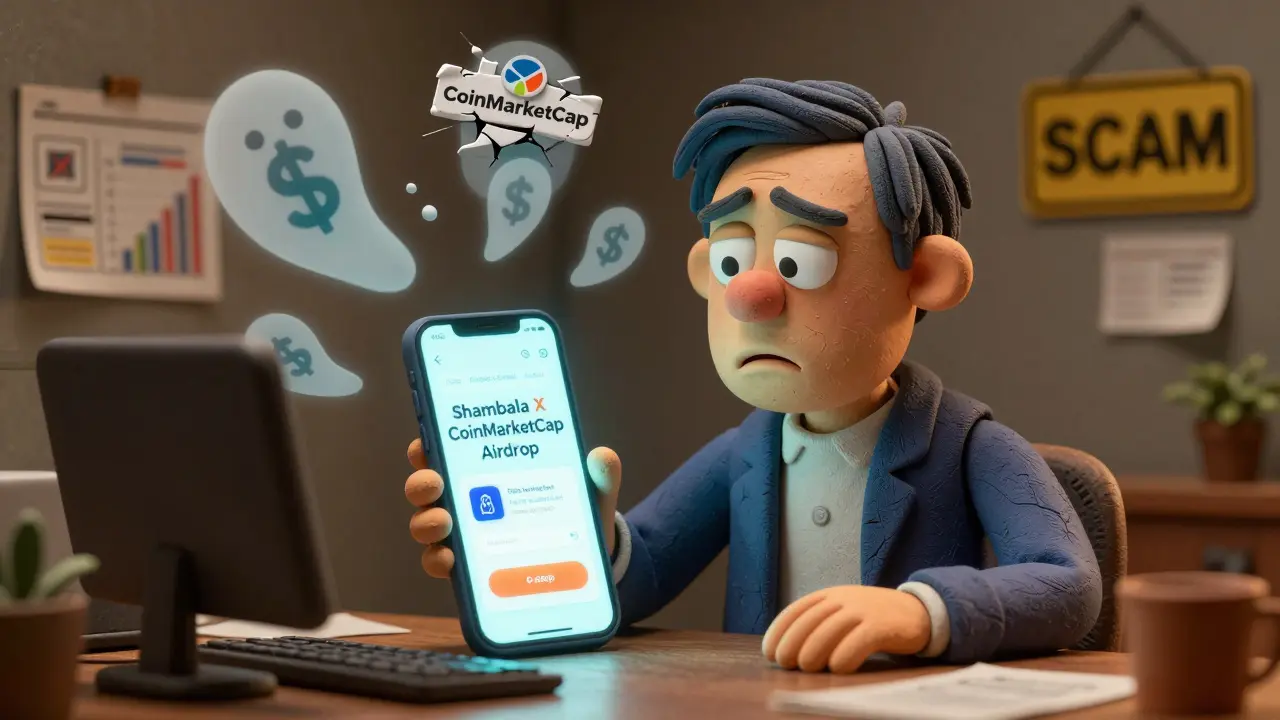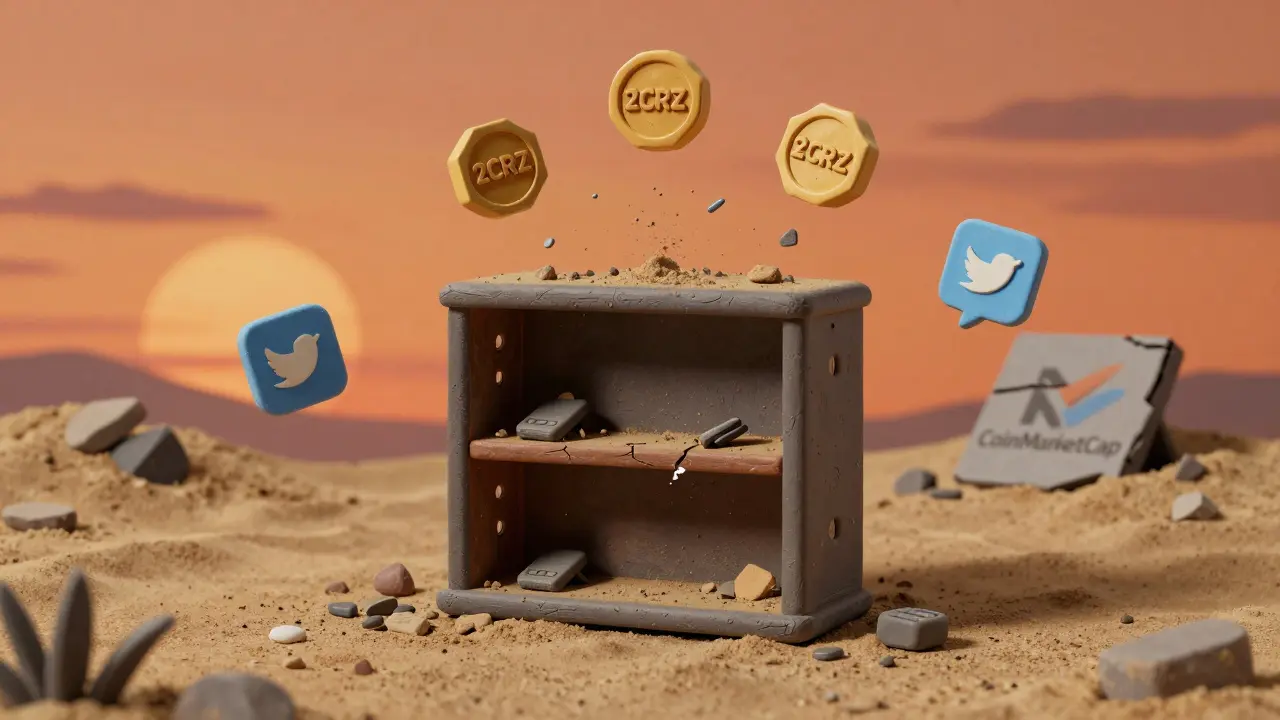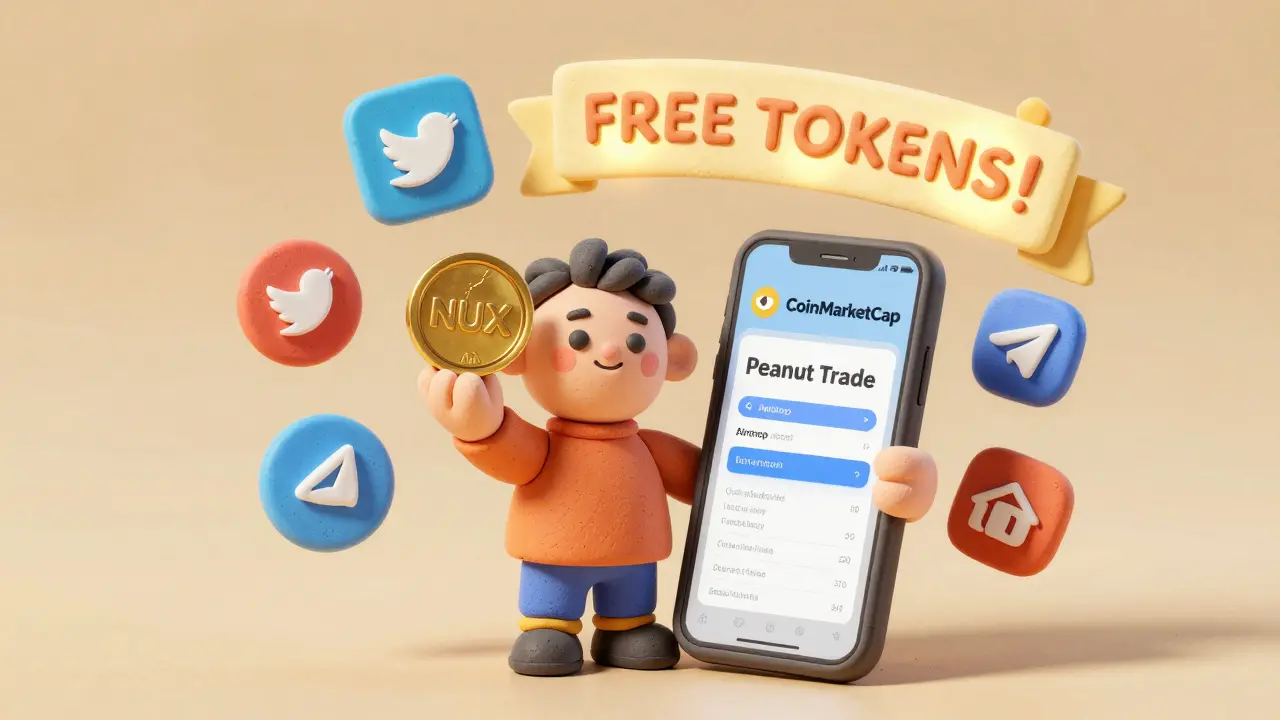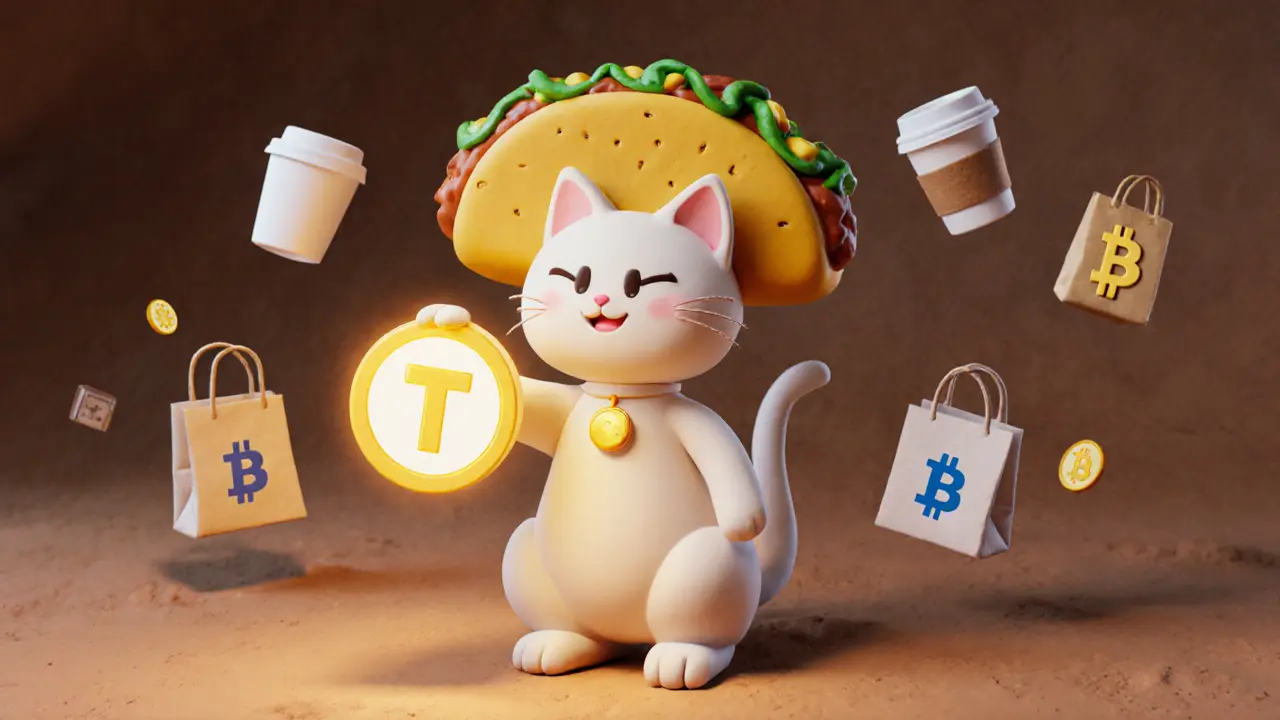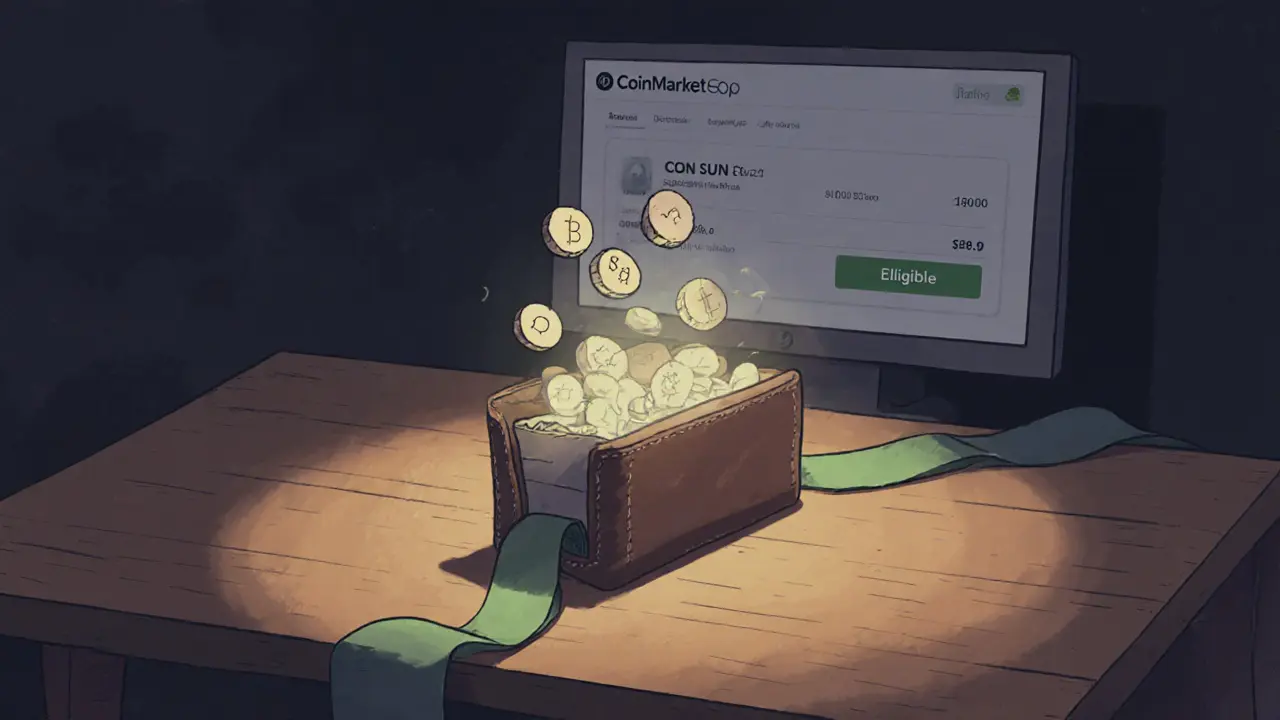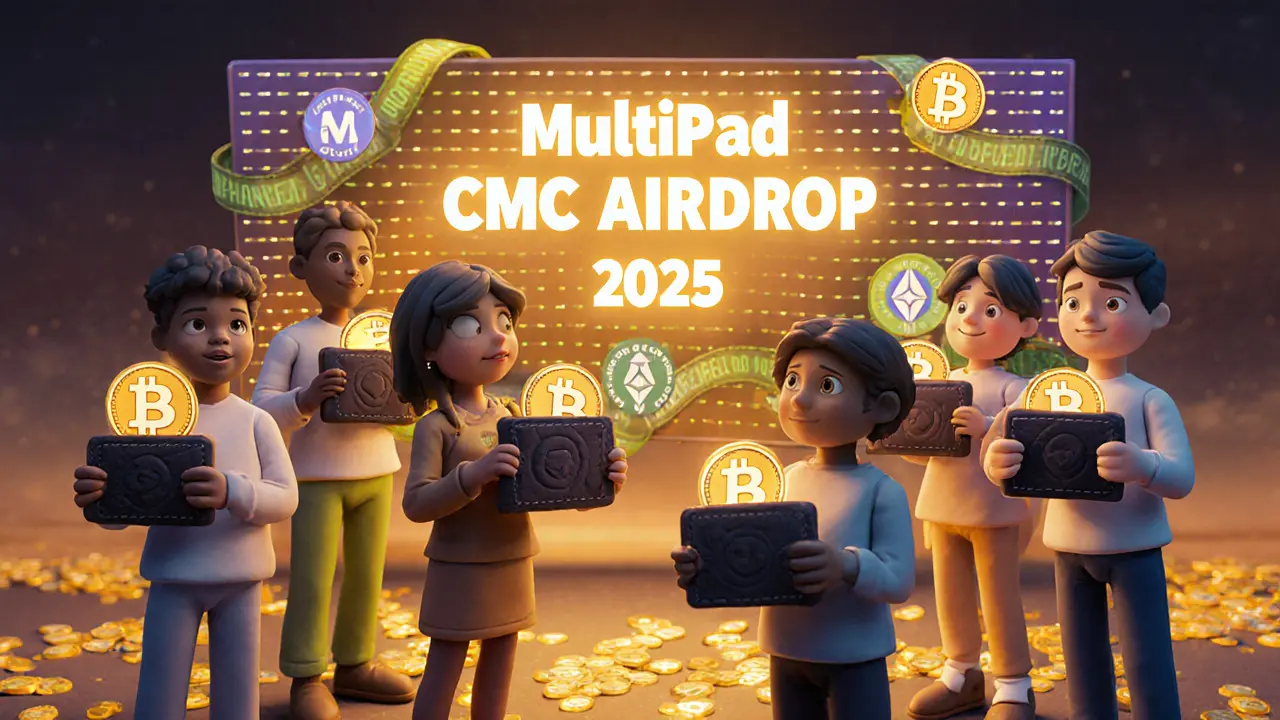CoinMarketCap Airdrop: What You Need to Know About Crypto Airdrops and How to Avoid Scams
When you hear CoinMarketCap airdrop, a token distribution listed or promoted on the popular crypto price tracking site. Also known as crypto airdrop, it’s when a project gives away free tokens to wallets—often to build a community or launch a new coin. But here’s the truth: just because a token shows up on CoinMarketCap doesn’t mean the airdrop is real. Most of them aren’t. In fact, over 80% of airdrops flagged on CoinMarketCap are either dead projects, scams, or low-effort meme coins with no future. The site doesn’t verify legitimacy—it just lists what’s submitted.
Real crypto airdrop, a free distribution of tokens to users who complete simple tasks like joining a Discord or holding a specific coin. Also known as token giveaway, it’s a legitimate marketing tool used by teams with working products. Examples include early airdrops from Uniswap or Arbitrum, where users got tokens for using the platform before it launched. But fake ones? They’re everywhere. Projects like CHIHUA and Gamestarter’s $GAME token have been falsely advertised as airdrops—zero supply, no team, no contract. These aren’t giveaways—they’re traps. You’re asked to connect your wallet, sign a malicious approval, and suddenly your ETH or tokens vanish. airdrop scams, fraudulent token distributions designed to steal crypto by tricking users into authorizing wallet access. Also known as fake airdrop, they rely on urgency, fake CoinMarketCap listings, and cloned websites. Always check the official project website. If the airdrop page looks like a 2017 WordPress theme, walks like a scam, and talks like a scam—it is one.
What separates real from fake? Real airdrops don’t ask for your private key. They don’t ask you to send crypto to "claim" free tokens. They don’t have vague whitepapers that say "revolutionary tech" without explaining how. Real ones are tied to active communities, verified social accounts, and public smart contracts you can audit. And they’re often announced on the project’s own blog—not just on CoinMarketCap’s trending list. airdrop tracking, the practice of monitoring legitimate token distributions using reliable sources like project websites, verified social media, and on-chain data. Also known as token distribution monitoring, it’s how smart users avoid losing money chasing ghosts. Use tools like AirdropAlert or DappRadar to cross-check, but never trust a listing alone. CoinMarketCap is a directory, not a stamp of approval.
What you’ll find in the posts below are real-world examples of what happens when people confuse a listing with legitimacy. You’ll see how CHIHUA had no token at all, how Gamestarter’s $GAME airdrop never existed, and how SkullSwap and Blockfinex—both listed on CoinMarketCap—are risky platforms with no audits or community. These aren’t anomalies. They’re the norm. The crypto space is full of noise. The goal isn’t to chase every free token—it’s to learn how to tell the ones worth your time from the ones that will empty your wallet. This collection cuts through the hype. It shows you what’s real, what’s fake, and how to protect yourself before you click "Connect Wallet" on the next "free" airdrop.
Shambala (BALA) Airdrop Details: What’s Real and What’s Not
Shambala (BALA) has no official airdrop with CoinMarketCap. Learn the truth about the MEXC Kickstarter campaign, the token's broken fee structure, and why this project isn't worth your time or money.
2CRZ Airdrop Details: What You Need to Know About the CoinMarketCap x 2crazyNFT Campaign
The 2CRZ airdrop from 2crazyNFT on CoinMarketCap promised free tokens but delivered little. With no transparency, a dead platform, and a history of manipulation, this campaign is a warning sign for crypto users.
Peanut.Trade (NUX) Airdrop Details: How It Worked and What Happened to the Tokens
The Peanut.Trade (NUX) airdrop in 2021 gave away 71,000 tokens to 2,000 winners. Today, NUX trades at $0.0042 - down 99.99% from its peak. Learn what happened and why it failed.
MetaGear (GEAR) Airdrop: What We Know About the Upcoming Token Distribution
MetaGear (GEAR) has no active airdrop yet, but with 1 billion tokens and zero circulating supply, a distribution event is likely coming. Learn how to prepare, spot scams, and join the official channels before launch.
TacoCat Token (TCT) Airdrop: How to Participate and What You’ll Get
The TacoCat Token (TCT) airdrop offers $20,000 in free tokens to 2,000 participants. Learn how to join, what’s required, and whether it’s safe. No payment needed - just social media steps and a BSC wallet.
SUNI Campaign Airdrop: What You Need to Know Before Claiming SUNI Tokens
The SUNI airdrop offers 4,118 free tokens via CoinMarketCap, but the token has no market value, no utility, and no public project details. Learn what’s real, what’s risky, and whether you should claim it.
MultiPad (MPAD) CMC Airdrop: How to Qualify and What You’ll Get in 2025
Learn how to qualify for the MultiPad (MPAD) CMC airdrop in 2025, what rewards you can expect, and why this isn't just another free token giveaway. Get the real steps to earn MPAD and avoid scams.
